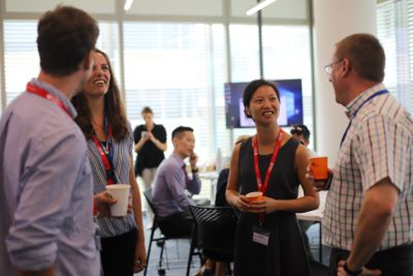Workshop on counterfactual black swans – using historic events to prevent future natural disasters

A safe living environment is something that many Singaporeans take for granted; while storms and earthquakes may cause disasters elsewhere in the region, Singapore is lucky enough to have been exempt from major natural hazards. However, with climate change comes an increase in extreme weather events, and coastal urban development may also affect Singapore’s resilience to e.g. storms. The means predictability based on past natural disaster events becomes less dependable, and the presuppositions of risk assessment need to change accordingly.
In the last week of August, Dr Yolanda Lin, Asst Prof David Lallemant and Asst Prof Susanna Jenkins organized and hosted a Workshop on Counterfactual Black Swans at NTU. Participants from six countries came together from multiple disciplines, such as volcanology, earthquake engineering, risk analysis for the insurance industry, human geography, and risk communication. Together they developed tools to help recognizing how natural events that did take place in the past that could potentially have had catastrophic impact on cities like Singapore if circumstances had been different. This method of counterfactual thought experiments can help assess risk that are difficult to predict with traditional risk assessment tools. For example, if wind had dispersed volcanic ash over populated areas rather than the sea, what would that have meant for e.g. air traffic. This way, the researchers can turn future unforeseen catastrophic events, so called ‘black swan’ events, into ‘grey swan’ events, i.e. rare but manageable events.
The impressive list of outcomes from the workshop include a special issue journal on counterfactual thinking in hazard and risk analysis, outreach material and future research proposals.
Read more about the Workshop on Counterfactual Black Swans here:
• Straits Times article: Is Singapore safe from typhoons?
